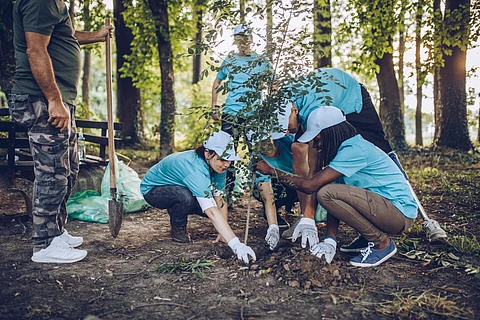

The Parties to the International Treaty on Plant Genetic Resources for Food and Agriculture (PGRFA) — also known as the Plant treaty — are gathered in Rome with a controversial agenda on the table. At the thirteenth meeting of the Ad Hoc Open-ended Working Group to Enhance the Functioning of the Multilateral System (MLS), which began on April 1, 2025, Parties will discuss a plan that could dilute the treaty’s benefit-sharing provisions by freeing access to genetic resources.
At present, only 35 food crops and 29 forage plants are listed in Annex 1 of the treaty. These are subject to the treaty’s MLS for access and benefit-sharing. The proposed amendment would remove this limit and allow all plant species to be eligible for transfer if a trait or gene from those species could potentially benefit food crop or forage breeding.
Perturbed by the proposal, 138 civil society organisations, farmers’ groups, Indigenous Peoples and local communities have written to developing country Parties, urging them not to agree to the changes that would dilute the provisions of the treaty. Down To Earth has a copy of the letter shared with Parties from developing countries. As many as 23 of these organisations are from India.
In 2019, Parties failed to conclude negotiations on the MLS, despite eight years of discussions. A decision to resume the deliberations was taken in 2022. Building on the 2019 talks, the co-chairs have now proposed amendments to Annex 1 of the treaty.
These amendments would compel States to provide access to all plant resources under the Standard Material Transfer Agreement of the treaty. This agreement governs the transfer of plant genetic material included in the MLS for research, training and breeding purposes.
The provisions under discussion are discriminatory against developing countries’ interests, the letter stated. The co-chairs’ proposals to amend Annex 1 do not merely add a few more crops and forages; they effectively render the Annex 1 list redundant by including “all PGRFA”, the letter said. This was not the purpose or intent of the original treaty drafters. The preamble to the Plant treaty clearly refers to the MLS as a system for Access and Benefit Sharing (ABS) for a “negotiated selection of PGRFA”.
There are about 350,000 known plant species, of which 30,000 are considered edible and 7,000 are cultivated. Thousands of species are discovered each year and biodiverse countries could end up agreeing to share resources without even knowing what they possess.
With these changes, the Plant treaty would also cease to align with the objectives of the Convention on Biological Diversity (CBD), potentially undermining rights guaranteed under it.
“The proposed package of measures undermines the sovereign rights of developing countries over their plant genetic resources and farmers’ rights over their seeds, promotes corporate capture of these resources and increases biopiracy, including digital biopiracy,” said Nithin Ramakrishnan, senior researcher at the Third World Network who is attending the meeting.
Instead of strengthening a specialised ABS system for specifically selected food crops and forages in the interest of food security, this could enable the exploitation of all plant genetic resources and threaten food security, he added.
In the letter, civil society groups have asked Parties from developing countries to reject inequitable amendments, stating that they exceed the Working Group’s mandate and violate treaty provisions. The meeting will conclude on April 4, 2025.